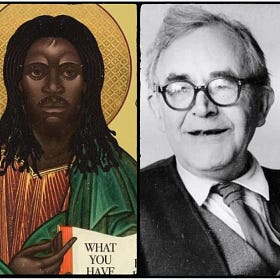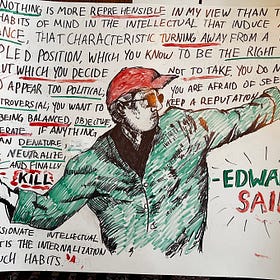
I am writing this update at the end of May, which means the Center for Barth Studies is currently firing on all cylinders. I travel to Scotland this week to attend the 2024 Scottish Dogmatics conference at the University of Aberdeen. Early next month, we are excited to host the 2024 Barth Graduate Student Colloquium on June 11–14 with a host of talented emerging scholars and Dirk Smit as the event speaker. The colloquium this year will focus on the Barmen Declaration in light of its 90th anniversary on May 31st. The center will then host its second translation meeting funded by the National Endowment for the Humanities on June 19–22 to continue translating the next three volumes of Barth’s Vörtrage und kleinere Arbeiten, 1922–1925, 1925–1930, 1930–1933.
After we wrap up our events for the summer, the center will be closed to visitors from July 1 through September 24. I am moving to Basel, Switzerland for two months to be a scholar in residence through the Karl Barth Center for Reformed Theology at the University of Basel. This research grant is part of a larger project on Karl Barth and apocalypticism funded by the Swiss National Fund. I will be giving a public lecture on Wednesday, August 21 if you are interested in attending and might happen to be nearby. In early November, the Karl Barth Center for Reformed Theology at the University of Basel will also host an international conference on the theme of Barth and apocalypticism as part of this three year research project. More information about that conference will be forthcoming.
This month, we had many great contributions to this online magazine. I have highlighted only a few below. If you get the chance in the coming days, check them out. We will continue to bring you essays to this platform throughout the summer so stay tuned for more to come.
As always, thank you for your support of the Center for Barth Studies and we wish you a wonderful summer ahead!
— Kait Dugan, Director
Event Announcement
The Center for Barth Studies is pleased to announce an upcoming hybrid conference titled “The Church, the Pastor, and Resonance in an Accelerated Age: Theological Conversations with Hartmut Rosa” at Princeton Theological Seminary on September 23–24. In partnership with Luther Seminary and funded by a Lilly Endowment grant, this conference will facilitat…
Barth and Cone on Divine Blackness, Part III
In this post we will look at part one of volume four, focusing on the central theme: “The Way of the Son of God into the Far Country.” I will try to show how, despite certain passages that promise otherwise, Barth’s rendering of what he calls the concrete history of God for us in Jesus Christ that constitutes the content of reconciliation—indeed, of the gospel—is framed by the very generalities that Barth claims to reject. These generalities continually function to eclipse Barth’s efforts at concreteness, such that his Son of God ultimately does not journey far enough—or concretely enough—into the far country.
There is No Riot Here
The kingdom of God comes not as a riot, and it is certainly not dressed in riot gear. It is heard in the voices of shared prayer and song in Hebrew, Arabic, Anishinaabe, and Cree, and all the languages of those gathered. The Kingdom of God is known in the breaking of matzoh and taboon and bannock in makeshift camp kitchens. Its words are written in crayon and marker and painted on Bristol board that these youth “will study war no more” (Isaiah 2:4). There is no riot here. There is only hope.
Divine Providence and Meaning, Part 1
As Barth reminds us, God is never disinterested. However, the prevailing social rubrics of “success” and “blessing” are not necessarily the standards by which God works. God remains lovingly active, but often, we do not recognize God’s activity until we can exercise hindsight. And even then, our interpretations remain provisional. However, providence does manifest over time, and this should be an encouraging thought that is productive of faith and hope.
A free hybrid event on arts and activism featuring Ricardo Pérez Gonzalez this Friday. A brand new book series Studies in Trauma Theology is launching with SCM Press. What does theology do, actually? Find out at this free hybrid conference this weekend. A virtual conference on rekindling hope in these difficult times. Early-bird registration for the 2024 Annual American Academy of Religion conference ends this Friday. A new book on Léopold Senghor’s life and political theology. The Louisville Institute’s grant applications open on June 1 for the 2025 cycle. Check out this forthcoming book from Oxford University Press in two weeks on feminist theology. Applications for the Ministry Exploration and Mentoring Projects For Young Adults through the Forum for Theological Exploration are due June 28.
God Here and Now is an online magazine and newsletter from the Center for Barth Studies. If you would like to support our work, you can donate to the center here. All donations are tax-deductible. Questions? Ideas? Email us: barth.center@ptsem.edu











